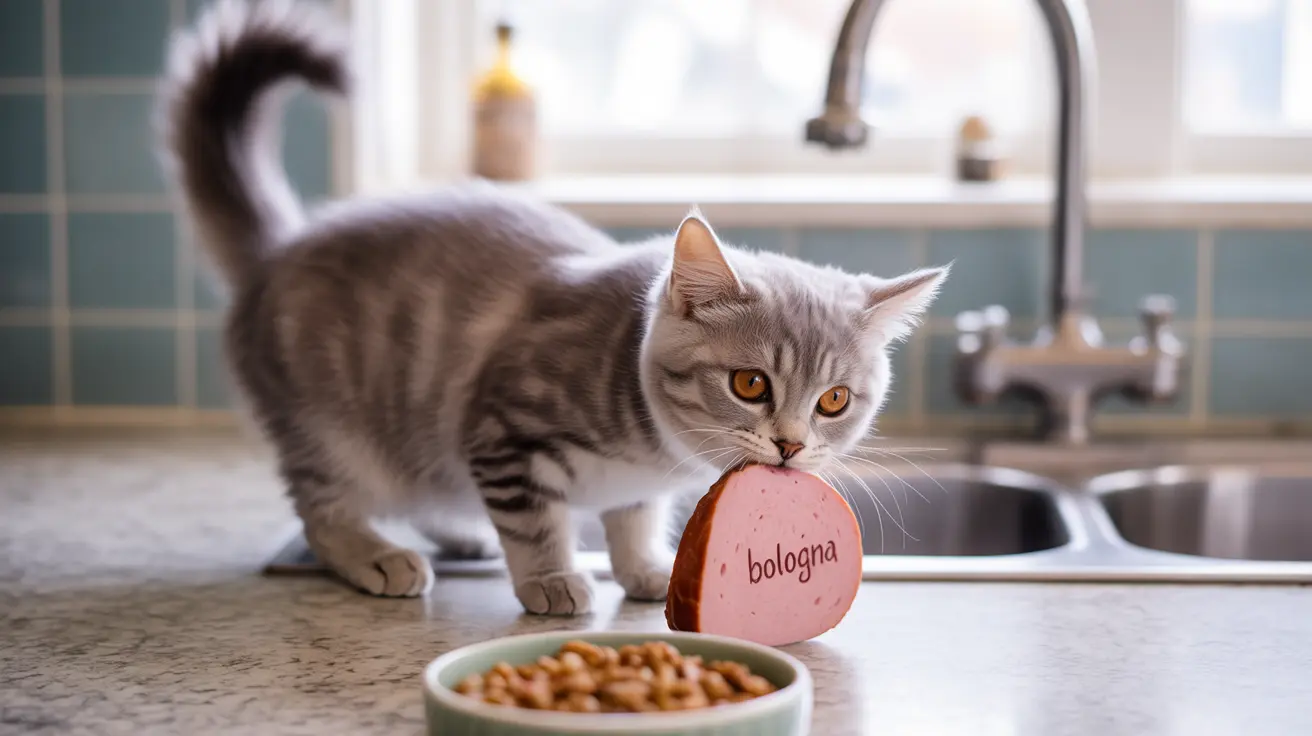Understanding Bologna and Your Cat's Health
As a cat owner, you've probably wondered if sharing a slice of bologna with your feline friend is safe. While cats may show interest in this popular deli meat, veterinary experts warn that bologna poses several health risks to our feline companions and offers minimal nutritional value.
Let's explore why bologna isn't an ideal treat for cats and what alternatives you should consider instead.
The Dangers of Bologna for Cats
Harmful Ingredients
Bologna contains several ingredients that can be toxic to cats. Most varieties include garlic and onion powder, which can damage feline red blood cells and cause serious health complications. Additionally, some bolognas contain myrtle berries and other seasonings that may be harmful to your cat's digestive system.
High Sodium Content
One of the biggest concerns with bologna is its extremely high sodium content. Cats are particularly sensitive to salt, and excessive intake can lead to:
- Severe dehydration
- Electrolyte imbalances
- Vomiting and diarrhea
- In extreme cases, seizures or death
Dangerous Preservatives
Bologna contains nitrates and nitrites as preservatives. These chemicals have been linked to various health issues in animals, including potential increased cancer risk. The long-term effects of these preservatives on cats remain a concern among veterinary professionals.
Impact on Your Cat's Diet
Nutritional Void
Despite being a meat product, bologna lacks the essential nutrients cats need for optimal health. Cats require specific amino acids like taurine, which they won't find in processed meats like bologna. Moreover, the high fat content can contribute to obesity and pancreatitis in cats.
Risk of Displacement
Feeding bologna to your cat can create poor eating habits and potentially lead them to reject their nutritionally complete cat food. This displacement effect could result in dietary deficiencies over time.
Safe Alternatives to Bologna
Instead of bologna, consider these healthier options for treating your cat:
- Plain, cooked chicken breast
- Small pieces of lean, unseasoned turkey
- Commercial cat treats formulated for feline health
- High-quality wet cat food as an occasional treat
When to Contact Your Vet
If your cat has consumed bologna, especially in large amounts, watch for these warning signs:
- Excessive thirst or urination
- Lethargy or weakness
- Vomiting or diarrhea
- Pale gums
- Rapid breathing or heart rate
Contact your veterinarian immediately if you notice any of these symptoms, particularly in kittens or cats with existing health conditions.
Frequently Asked Questions
Is it safe for cats to eat bologna?
No, bologna is not safe for cats to eat regularly. It contains harmful ingredients like garlic and onion powder, excessive sodium, and preservatives that can be dangerous for felines.
What health risks can bologna pose to my cat if fed regularly?
Regular bologna consumption can lead to sodium poisoning, obesity, pancreatitis, and potential toxicity from ingredients like garlic and onion powder. Long-term exposure to preservatives may also increase cancer risk.
Can kittens or sick cats eat bologna safely?
No, kittens and sick cats should never be given bologna. Their more sensitive systems make them especially vulnerable to the harmful effects of processed meats and their additives.
What ingredients in bologna are toxic to cats?
Toxic ingredients in bologna include garlic powder, onion powder, high levels of sodium, nitrates/nitrites, and sometimes myrtle berries. These can all cause serious health issues in cats.
What are healthier alternatives to bologna for feeding my cat?
Healthier alternatives include plain cooked chicken or turkey, commercial cat treats, and high-quality wet cat food. Always ensure any human food given to cats is plain, unseasoned, and offered in small amounts.
Conclusion
While it might be tempting to share bologna with your cat, the risks far outweigh any potential benefits. Focus on providing your feline friend with a balanced, species-appropriate diet, and save the bologna for your own sandwiches. Your cat's health and longevity depend on making informed dietary choices.






